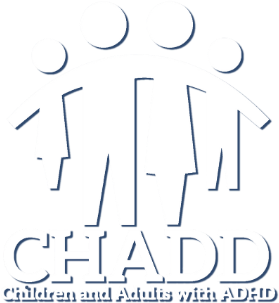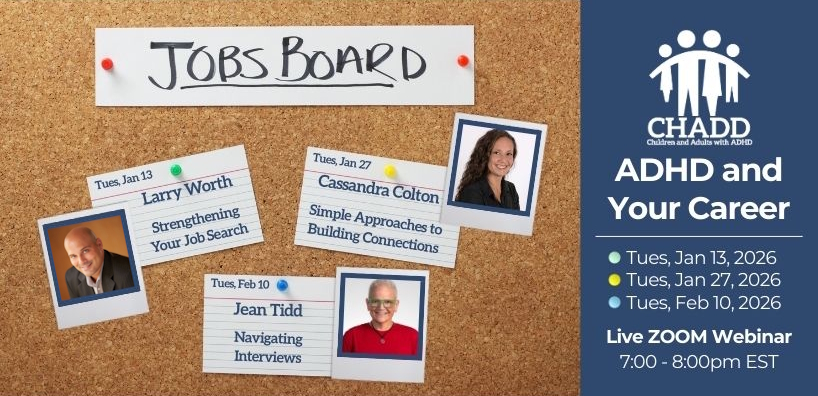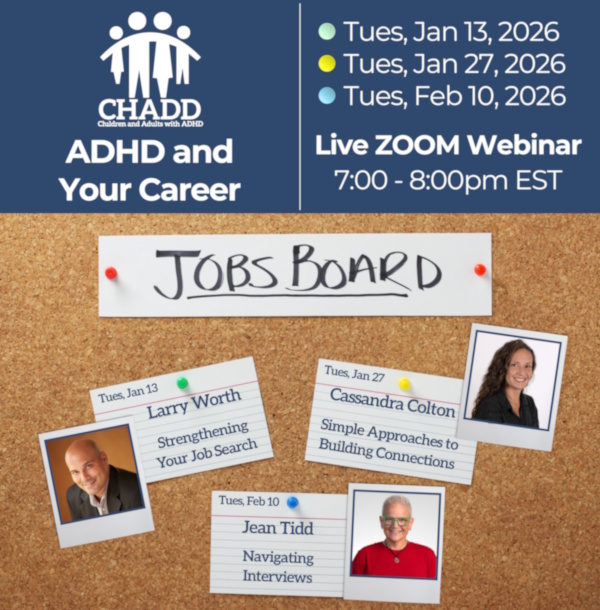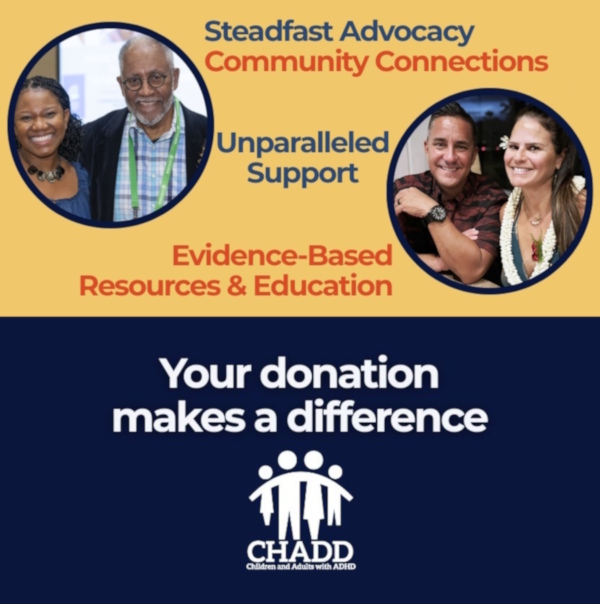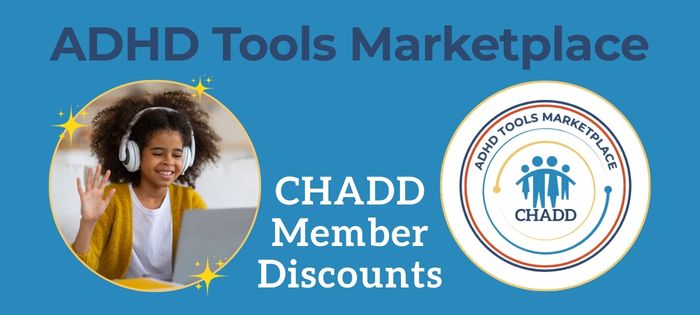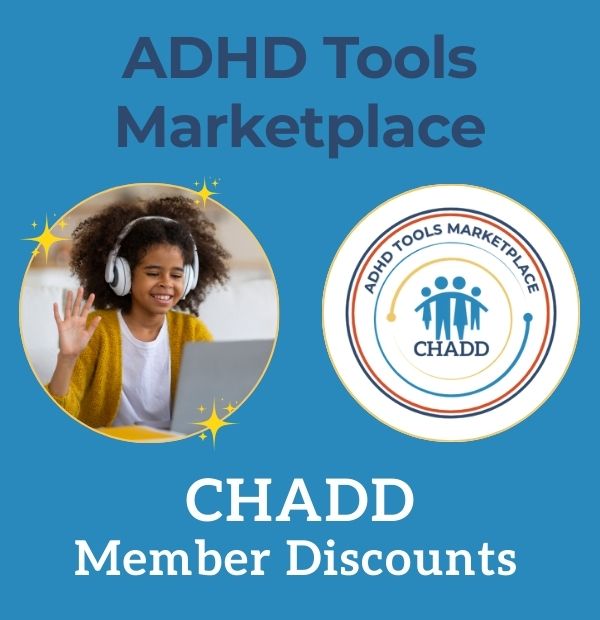Online Communities
ADHD in the News 2026-02-19
February 19, 2026Department of Education Backs Down on Unlawful Directive Targeting Educational Equity
Off-Label Methylphenidate Use Common in Adults with Mood Disorders
What If We’ve Been Wrong About How ADHD Drugs Work?
ViewADHD Weekly, February 19, 2025
February 19, 2026Could a Body Double Help You Increase Your Productivity?
When Teens Can Start Driving and When They Should Wait
Lost in the Transitions
ViewEvents
-
Training on ADHD | Self-Paced Online Courses
November 1, 2024—November 1, 2034
Register -
Listen to podcasts about ADHD
December 1, 2025—November 1, 2034
Register -
ADHD and Your Career: Navigating Interviews
February 10, 2026—February 10, 2026 | 7 PM ET
Register -
Using Cultural Humility to Engage Black Families About ADHD
February 4, 2026 | 2:00 PM
-
ADHD and Your Career: Simple Approaches to Building Connections
January 27, 2026—January 27, 2026 | 7 PM ET
Register -
ADHD and Your Career: Strengthening Your Job Search
January 13, 2026—January 13, 2026 | 7 PM ET
Register

Attention Magazine
Recognized for its excellence, CHADD’s bimonthly magazine is rich in practical information, clinical insights, and evidence-based strategies for managing ADHD.
LEARN MORE
 We can’t wait to see the innovative, insightful submissions you’ll share with our community!
We can’t wait to see the innovative, insightful submissions you’ll share with our community!

